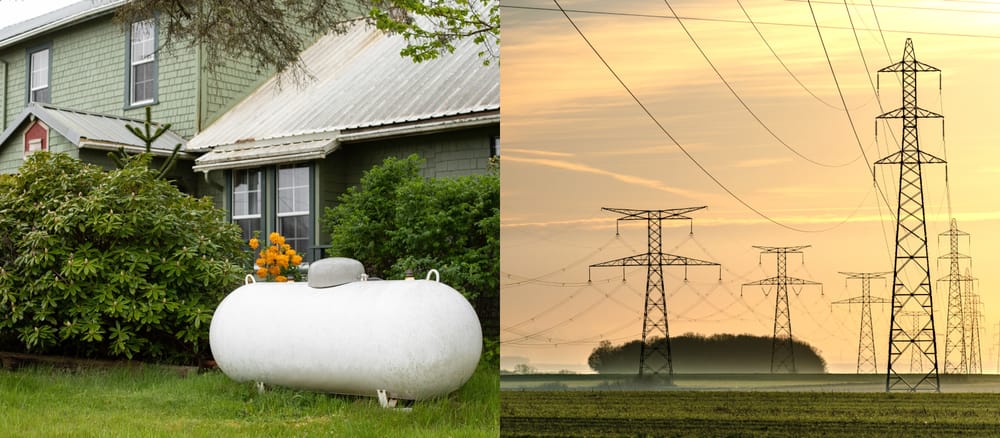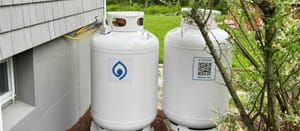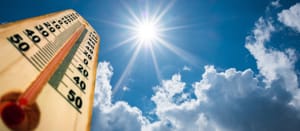It’s no secret—summer can send your energy bills soaring. Whether you’re cranking the A/C, hosting more people in your home, or just keeping up with daily laundry, your appliances are working overtime. Choosing the right energy source to power them can make a big difference in both performance and cost.
So what’s cheaper in the summer: propane or electricity? The answer depends on a few factors—including where you live, how your home is set up, and how much energy you use. But by comparing performance, operating costs, and summer-specific usage, you can make a smarter, more informed decision.
Let’s break it down.
Upfront vs. Long-Term Costs
Electric appliances tend to be less expensive to purchase and install, making them a popular choice for budget-conscious homeowners and new construction. Most homes are already wired for electricity, and installation is usually straightforward.
Propane appliances, on the other hand, can cost slightly more upfront, especially if a tank installation or gas line hookup is required. But where propane shines is in long-term energy efficiency.
- Propane water heaters cost 30% less to operate on average than electric models.
- Propane dryers finish loads faster, which means lower utility bills and less wear on your clothes.
- Propane ovens and grills offer precise temperature control, helping you use less energy while cooking.
If you plan to stay in your home long-term, propane can deliver noticeable savings over time. And if you ever plan on selling your home, propane-powered appliances can deliver a boost in your home’s value.
Summer-Specific Usage and Costs
Electricity rates tend to spike in the summer because of high demand. Utility companies may implement time-of-use (TOU) pricing, meaning running appliances during peak hours (typically afternoons and early evenings) can cost more, sometimes 2–3x more per kilowatt-hour than off-peak usage.
For example:
- Running an electric dryer at 5 p.m. in July could cost twice as much as running it at 10 p.m.
- Heating water for back-to-back showers or washing dishes during dinner hours may incur surcharge penalties, depending on your provider.
In contrast, propane pricing tends to remain stable, particularly with a provider like Tankfarm, which utilizes real-time tank monitoring and automatic scheduling to ensure consistent usage and transparent pricing.
Performance Comparison: Appliance by Appliance
Here's how propane and electric stack up in real-world summer appliance performance:
Electricity’s Advantages
To be clear, electricity has its strengths, too—especially as utilities continue transitioning to cleaner energy sources like solar, wind, and hydro.
- Electric heat pumps can be extremely efficient in mild climates, offering both heating and cooling capabilities.
- Induction cooktops heat faster and more safely than traditional electric burners.
- No onsite fuel storage is required—everything runs through the grid, which can be simpler for homeowners who don’t want to manage deliveries or tanks.
And in some regions where electricity is powered by renewable energy, the environmental impact can be lower than propane. However, that varies widely depending on your local utility provider and energy mix.
Propane’s Strengths
Where propane excels is power, speed, and efficiency, especially for high-demand appliances that work overtime in summer.
- Hot water for showers, pool use, and dishwashing? Propane water heaters recover faster and keep up with heavy use.
- Outdoor living? Propane powers grills, patio heaters, fire pits, and mosquito traps with ease.
- Big laundry loads? Propane dryers save time and energy, especially when you’re washing beach towels, clothes, and bedding more often.
Plus, propane burns clean—producing fewer greenhouse gas emissions than electricity derived from coal or natural gas, and virtually no indoor pollutants. For families spending more time at home in the summer, that means cleaner air inside and outside.
Smarter Use with Tankfarm
At Tankfarm, we’ve taken the guesswork out of propane service. Our smart tank monitoring tracks your fuel levels in real time, and our automated logistics system ensures you get a refill when you need it – not before, not after. No scheduling stress. No peak-hour fees. No running out.
And because we offer transparent pricing and no contracts, you get the peace of mind of predictable energy bills—something electric customers often can’t count on in peak summer months.
Final Thoughts: What’s the Right Choice?
If your top priority is low upfront cost and simplicity, electric appliances might fit the bill, especially if you live in a region with moderate temperatures and a cleaner electric grid.
But if you’re looking for long-term savings, reliability, and faster performance—especially during the heat of summer—propane is hard to beat.
At Tankfarm, we believe in smarter energy. Whether it’s lowering your bills, increasing your efficiency, or helping you enjoy outdoor living to the fullest, propane can deliver real value without the volatility.
Ready to Power Up Your Summer?
Thousands of homeowners are making the switch to propane—and saving more every month. With Tankfarm, it's easy, transparent, and worry-free.
👉 Request a Free Quote today to see how propane can power your summer—and your budget.




